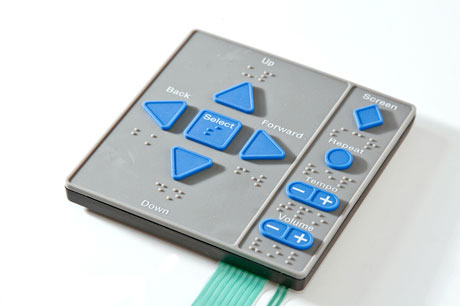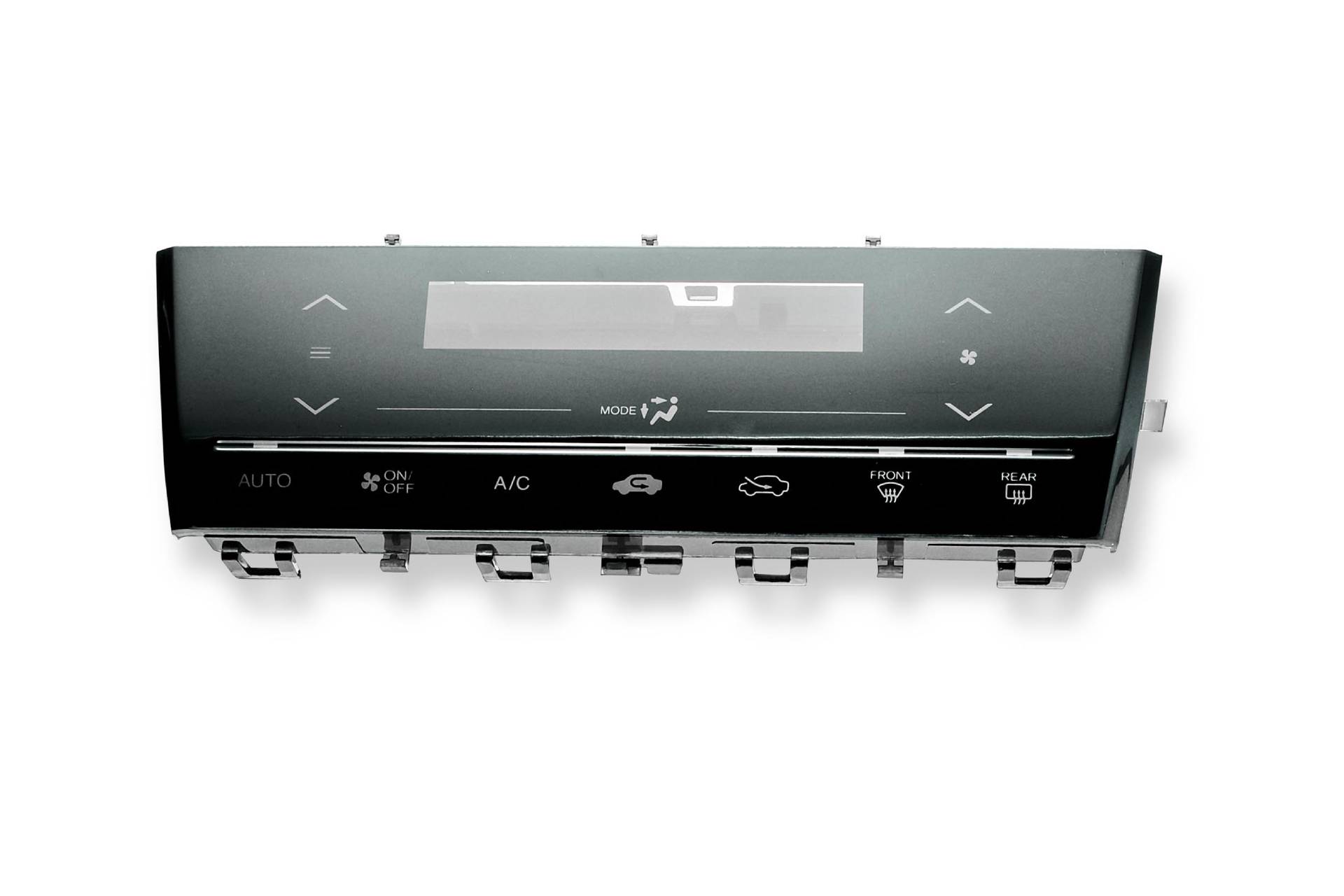Comprehending the Importance of Membrane Switch in Modern Electronics and Their Applications
Membrane switches act as a vital part in modern electronic devices, providing a reliable interface for customer interaction. Their personalized and lightweight nature makes them appropriate for a variety of applications across varied sectors. Recognizing their key components and benefits can provide insights right into their expanding importance. As modern technology remains to advance, the development of Membrane switches over questions regarding their future applications and layout innovations. What lies in advance in this vibrant field?

What Are Membrane Switches?
Membrane buttons are necessary parts in contemporary electronic devices, working as customer interfaces that assist in communication between gadgets and users. These buttons contain a number of layers, including a visuals overlay, a sticky layer, and a circuit layer, all of which collaborate to create a sturdy and practical interface. The layout enables a level, inconspicuous service that can be tailored concerning dimension, shape, and aesthetic look, making them suitable for various applications, from customer electronics to medical devices. The tactile feedback offered by Membrane switches over enhances customer experience, while their resistance to dirt and moisture makes them suitable for testing settings. Moreover, Membrane buttons can integrate functions such as backlighting and published graphics, even more broadening their functionality. Their adaptability and effectiveness make them a preferred option in sectors where reliability and ease of use are paramount, eventually adding to the seamless operation of contemporary digital gadgets.
Secret Parts of Membrane Switches Over
While various elements add to the capability of a membrane switch, three main layers play considerable functions in its style and procedure. The leading layer, usually made from a long lasting polymer, acts as the interface for user interaction, typically including published graphics and icons. Below this is the spacer layer, which keeps the essential range in between the leading layer and the circuit layer. This spacer layer warranties that the button turns on only when pressed, avoiding unintentional inputs. Lastly, the circuit layer consists of conductive traces that finish the electric circuit when the leading layer is dispirited. These traces can be made from numerous products, consisting of copper or silver. With each other, these parts develop a durable and reliable gadget that is compact and versatile, suitable for a wide variety of electronic applications, from household devices to clinical gadgets. Comprehending these crucial elements is essential for appreciating the overall capability of Membrane switches.
Benefits of Making Use Of Membrane Changes

Membrane Switch Production Process
Understanding the Membrane switch production process discloses the elaborate steps associated with producing these crucial elements. The process normally begins with the layout phase, where formats and specs are developed utilizing specialized software. Following this, the visuals overlay is published on a versatile substrate, usually utilizing high-resolution printing techniques to assure clearness and precision.Next, the glue layers are applied, which offer to bond the various parts together. The circuit layers, made from conductive inks or products, are then published onto a separate substratum. These layers are thoroughly straightened and laminated flooring to create a practical switch.After assembly, the switches undertake checking to verify performance and resilience. Quality control actions are carried out throughout the procedure to identify and remedy any flaws. Finally, the finished Membrane buttons are packaged and prepared for circulation, prepared to meet the demands of modern digital applications.
Applications of Membrane Changes in Different Industries
Membrane switches are significantly used throughout different industries, especially in medical devices and customer electronic devices. In the clinical field, they offer reliable control user interfaces for devices that require specific operation. In a similar way, in consumer electronics, these switches enhance user Discover More communication by offering sleek and receptive user interfaces.
Medical Equipment Control
Countless modern-day clinical gadgets make use of Membrane switches for streamlined procedure and improved user communication. These buttons provide a reputable, long lasting user interface for a selection of applications, consisting of diagnostic equipment, person tracking systems, and surgical instruments. Their customizable designs permit specific designs that can accommodate the special needs of healthcare professionals, guaranteeing user-friendly navigating and efficient accessibility to necessary functions. In addition, Membrane switches are resistant to contaminants, making them suitable for clean and visit the website sterile settings. The responsive comments they supply can enhance user self-confidence, reducing the threat of errors throughout vital clinical procedures. In general, the combination of Membrane switches in medical tools considerably contributes to boosted operational performance and person security in medical care settings.
Customer Electronics Interfaces
In the domain name of consumer electronic devices, Membrane switches play a critical role in improving customer interfaces across a variety of gadgets. These buttons are indispensable to products such as push-button controls, microwaves, and pc gaming consoles, offering a effective and user-friendly user interface. Their design enables a seamless assimilation of graphics and capability, enabling producers to develop smooth, modern-day visual appeals without jeopardizing use. Membrane switches are additionally understood for their sturdiness, typically holding up against considerable usage and exposure to numerous ecological conditions. In addition, they can incorporate functions like backlighting and responsive feedback, more boosting the individual experience. As customer needs for innovative yet user-friendly interfaces grow, Membrane switches remain to be a crucial element ahead of time digital gadget performance.
Design Considerations for Membrane Switches Over
Creating reliable Membrane switches requires careful attention to various aspects that influence both functionality and Related Site individual experience. One essential consideration is the option of products, as they can impact sturdiness, tactile comments, and aesthetic appeal. Picking an ideal adhesive is vital for assuring long-term attachment and resistance to ecological factors.In enhancement, the format and style of the switch need to fit individual communication, with button dimensions and spacing optimized for ease of use. The consolidation of graphics and labeling ought to focus on clarity and exposure under different lighting conditions.Consideration of electrical qualities, such as actuation force and button level of sensitivity, will certainly boost the responsiveness of the Membrane switch. The layout ought to suit making procedures to ensure cost-effectiveness and prompt production. On the whole, a well-thought-out layout enhances both the customer and the functionality experience of Membrane switches in modern-day electronic devices.

Future Trends in Membrane Switch Modern Technology
As modern technology proceeds to advance, Membrane buttons are poised to integrate brand-new developments that will certainly boost their functionality and application in numerous areas. One considerable pattern is the unification of resilient and adaptable products, which will boost the life expectancy and integrity of these buttons. Enhanced surface appearances and adjustable graphics are additionally anticipated, permitting more instinctive user interfaces.Moreover, the assimilation of wise innovation, such as touch-sensitive surface areas and haptic comments, is anticipated to enhance user communication, making Membrane changes a lot more interesting and receptive. Additionally, developments in published electronic devices will certainly enable more intricate circuitry within thinner accounts, additionally expanding design possibilities.Sustainability will certainly likewise play a crucial function in future growths, as manufacturers discover environment-friendly materials and manufacturing processes. Overall, these trends will certainly assure that Membrane switches stay crucial and pertinent in a progressively digital and interconnected world.
Frequently Asked Concerns
Exactly How Do Membrane Switches Contrast to Standard Mechanical Buttons?
Membrane changes deal benefits over traditional mechanical switches, consisting of lowered size, lighter weight, and improved durability. They typically give a secured surface area, boosting resistance to dust and dampness, making them perfect for varied applications.
What Products Are Frequently Utilized in Membrane Switch Construction?

Can Membrane Switches Withstand Extreme Environmental Issues?
Membrane buttons can endure extreme ecological conditions, depending on their layout and products. Premium constructions commonly feature resilience versus temperature level variations, moisture, and direct exposure to chemicals, making them suitable for various requiring applications across sectors.
For How Long Do Membrane Switches Over Commonly Last Prior To Failing?
Membrane switches over typically exhibit a lifespan varying from 1 to 10 million actuations, depending on elements such as use frequency, ecological conditions, and manufacturing high quality. Regular upkeep can prolong their sturdiness and functional reliability considerably.
Are Membrane Switches Over Customizable for Details Applications?
Membrane buttons are certainly adjustable for specific applications. They can be tailored in layout, dimension, and capability, enabling manufacturers to satisfy unique individual needs and boost item aesthetic appeals while preserving operational performance and resilience. Membrane buttons are essential components in modern electronics, offering as individual interfaces that assist in communication in between gadgets and customers. The tactile feedback given by Membrane switches boosts individual experience, while their resistance to dirt and moisture makes them ideal for challenging environments. The incorporation of graphics and labeling must prioritize clarity and presence under numerous illumination conditions.Consideration of electric attributes, such as actuation pressure and button level of sensitivity, will enhance the responsiveness of the Membrane button. Boosted surface structures and adjustable graphics are also prepared for, enabling for even more user-friendly user interfaces.Moreover, the integration of clever innovation, such as touch-sensitive surfaces and haptic responses, is expected to boost user communication, making Membrane switches over extra responsive and engaging. Membrane switches over deal advantages over traditional mechanical buttons, consisting of lowered size, lighter weight, and boosted toughness.